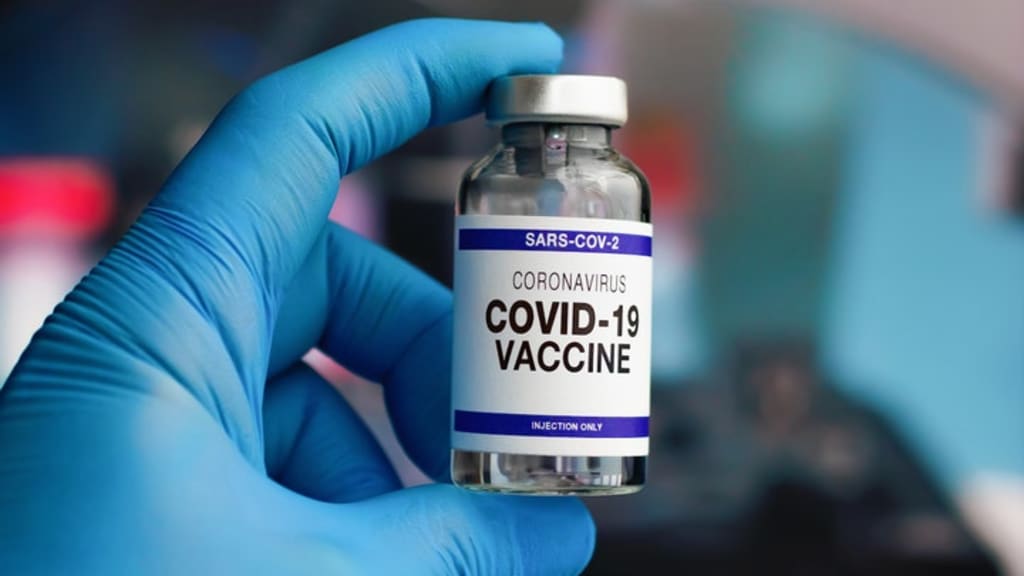COVID-19 Vaccine Monitor poll has unveiled
Covid-19 V M Poll has unveiled

The latest Kaiser Family Foundation (KFF) COVID-19 Vaccine Monitor poll has unveiled some intriguing insights into the American public's attitudes and intentions regarding the new COVID-19 vaccine.
The latest Kaiser Family Foundation (KFF) COVID-19 Vaccine Monitor poll has unveiled some intriguing insights into the American public's attitudes and intentions regarding the new COVID-19 vaccine. The survey, conducted between September 6 and September 13, collected responses from 1,296 U.S. adults through online and telephone polls. KFF, a reputable institution based in San Francisco, prides itself on being an "independent source for health policy research, polling, and journalism."
One of the most notable findings of the poll is that a substantial portion of U.S. adults, precisely 52%, has expressed reservations about receiving the new COVID-19 vaccine. They either indicated that they will "probably" or "definitely" not get vaccinated. On the flip side, 23% of adults are firmly committed to getting vaccinated, while another 23% are leaning towards receiving the vaccine but are not entirely sure yet.
The division doesn't end there; the poll revealed a stark partisan divide in the United States when it comes to COVID-19 vaccination. Among those who are resolutely committed to getting vaccinated, the majority are Democrats or individuals aged 65 and older. This is a noteworthy observation as political affiliation appears to be a significant factor influencing vaccination decisions. While 70% of Democrats are planning to get vaccinated with the new COVID-19 vaccine, only 24% of Republicans share the same intent.
This partisan divide extends beyond vaccination intentions and into attitudes about COVID-19 precautions as well. Among Democrats surveyed, 58% expressed a willingness to take extra precautions like wearing masks, avoiding travel, and refraining from attending public gatherings as COVID-19 cases surge. In contrast, only 16% of Republicans showed a similar inclination towards taking these preventive measures. This difference in approach to COVID-19 precautions is emblematic of the broader political polarization around pandemic-related issues in the United States.
When it comes to the critical question of vaccinating children with the new COVID-19 vaccine, a significant portion of parents expressed reluctance. Despite recommendations from the Centers for Disease Control and Prevention (CDC) to vaccinate children aged 6 months and older, more than half of parents surveyed stated that they will "probably" or "definitely" not vaccinate their children. This reluctance to vaccinate children underscores the ongoing debate and concern surrounding the new COVID-19 vaccine, especially among parents.
However, attitudes shift when the focus turns to other vaccines such as those for measles, mumps, and rubella. According to the KFF poll, the majority of adults (68%) and parents (55%) support mandatory vaccination for healthy children. Yet, a significant minority of parents (43%) and adults (31%) believe that the decision to vaccinate children should ultimately rest with the parents themselves. This divergence in opinion highlights the complex and multifaceted nature of vaccination-related decisions in society.
Interestingly, the survey participants indicated a higher willingness to receive the flu shot and the new Respiratory Syncytial Virus (RSV) vaccine when compared to the new COVID-19 vaccine. This could be due to the familiarity of these vaccines and their established track record in preventing illness.
Dr. Marc Siegel, a clinical professor of medicine at NYU Langone Medical Center and a Fox News medical contributor, emphasized that the decision to get the new COVID-19 vaccine should be a personal one, grounded in facts and evidence rather than fear or politics. While the COVID-19 vaccine may not completely prevent virus transmission, it still offers significant benefits, especially for high-risk individuals.
Dr. Siegel recommended the vaccine for children at higher risk, elderly individuals, and adults with underlying health conditions like obesity, heart disease, cancer, lung disease, and immunodeficiencies. He underscored that the virus itself poses more significant concerns than potential vaccine side effects. Citing substantial evidence, Dr. Siegel pointed out that being vaccinated and receiving booster shots can effectively reduce the risk of long COVID, including myocarditis triggered by the virus.
In conclusion, the KFF poll underscores the existence of deep divides in the American public's attitudes towards the new COVID-19 vaccine, with political affiliation playing a significant role in shaping vaccination intentions. Despite these differences, the survey results underscore the importance of informed decision-making when it comes to vaccination, especially for individuals at higher risk, and the potential benefits of vaccination in reducing the severity of COVID-19-related outcomes. As the vaccination rollout continues, these findings highlight the need for targeted education and outreach efforts to address vaccine hesitancy and ensure widespread acceptance and uptake of the COVID-19 vaccine.
About the Creator
Abdullah Rajon
Experienced content writer skilled in SEO optimization, research, and deadline-driven delivery. Let's create engaging content together!






Comments (1)
nice work